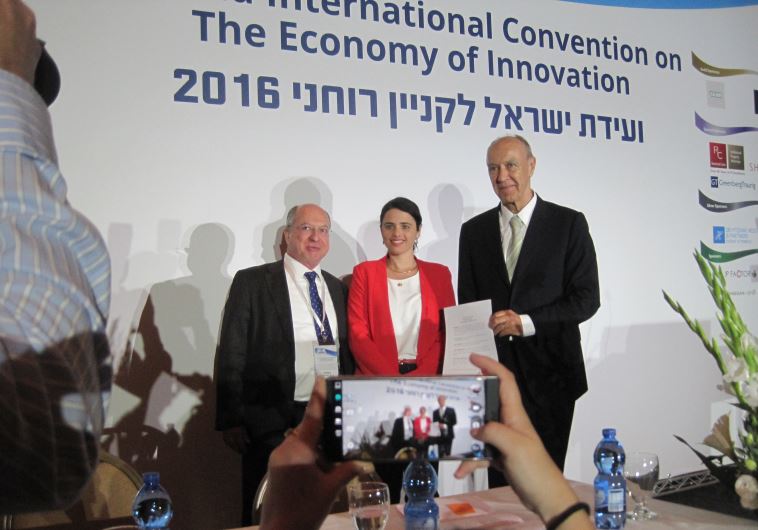WIPO head Gurry: BDS should not have impact on intellectual property rights
WIPO is the global umbrella forum for a range of international groups focused on intellectual property services, policy, information and cooperation.
 Tal Band, Ayelet Shaked, Francis Gurry Updated:
Tal Band, Ayelet Shaked, Francis Gurry Updated: